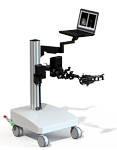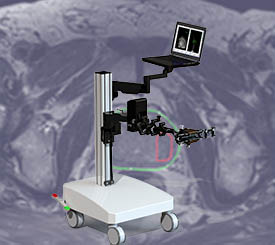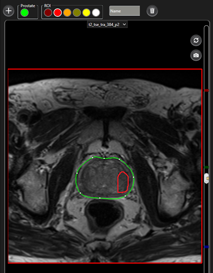Peace of mind is important. It’s even more important when you’re making decisions about your health. Thanks to new technology, that’s getting easier for Urology San Antonio patients. It’s called “Fusion Biopsy,” and it’s the most powerful and accurate tool in Prostate Cancer Detection.
How It Works
Fusion Biopsy is an advanced type of Prostate Biopsy that uses high-tech imaging. Patients first have an MRI scan of their prostate. Doctors examine those images and pinpoint any suspicious areas. Next, special equipment combines those images with ultrasound images during the biopsy. This creates a digital, 3D road map that allows for precise targeting and sampling.
Benefits
Increased accuracy allows doctors to identify patients in need of treatment faster. It also allows more advanced customization of treatment for specifics types of cancer. Not all cancer requires immediate treatment, so having better information can give patients much needed peace of mind.

Physicians often recommend Fusion Biopsy for patients who are having a repeat biopsy or have an elevated PSA. They also recommend the procedure for those who have prostate cancer and have been monitoring it over time.
“We’ve never had this level of accuracy available to us,” says Dr. David Talley, another physician who performs Fusion Biopsy. “It’s an exciting new technology that’s changing the way we diagnose prostate cancer.”
Prostate Cancer Screening
Catching Prostate Cancer early is key. In the early stages, Prostate Cancer does not cause symptoms. That’s why screening is important based on your age and other risk factors. Prostate Cancer screening generally consists of a simple blood test and a quick physical exam. After these tests, a urologist will help determine if more testing, such as a biopsy, is needed.
Screening Schedule
Under 40: Not recommended.
40-49: Recommended at least once in your 40s, and possibly more frequently depending on your risk factors.
50-69: Every year unless your doctor suggests otherwise.
70+: Recommended for men with 10+ years life expectancy.
Risk Factors
Age: The disease is rare before age 40. It is most common in men over age 65.
Race: African-Americans are twice as likely to develop prostate cancer as Caucasians
Family History: Prostate cancer runs in families. Men with a blood relative who has the disease have double the risk of having prostate cancer themselves.
Weight and Diet: Men who are overweight may be more likely to develop prostate cancer. Studies also suggest that eating a lot of red meat and high-fat foods increases your risk for prostate cancer.
Time for your screening?
Use the form below to request an appointment if it’s time for your Prostate Cancer screening. Or, call 210-582-5505 between 8am and 5pm M-F.
[vc_row][vc_column width=”1/2″]






